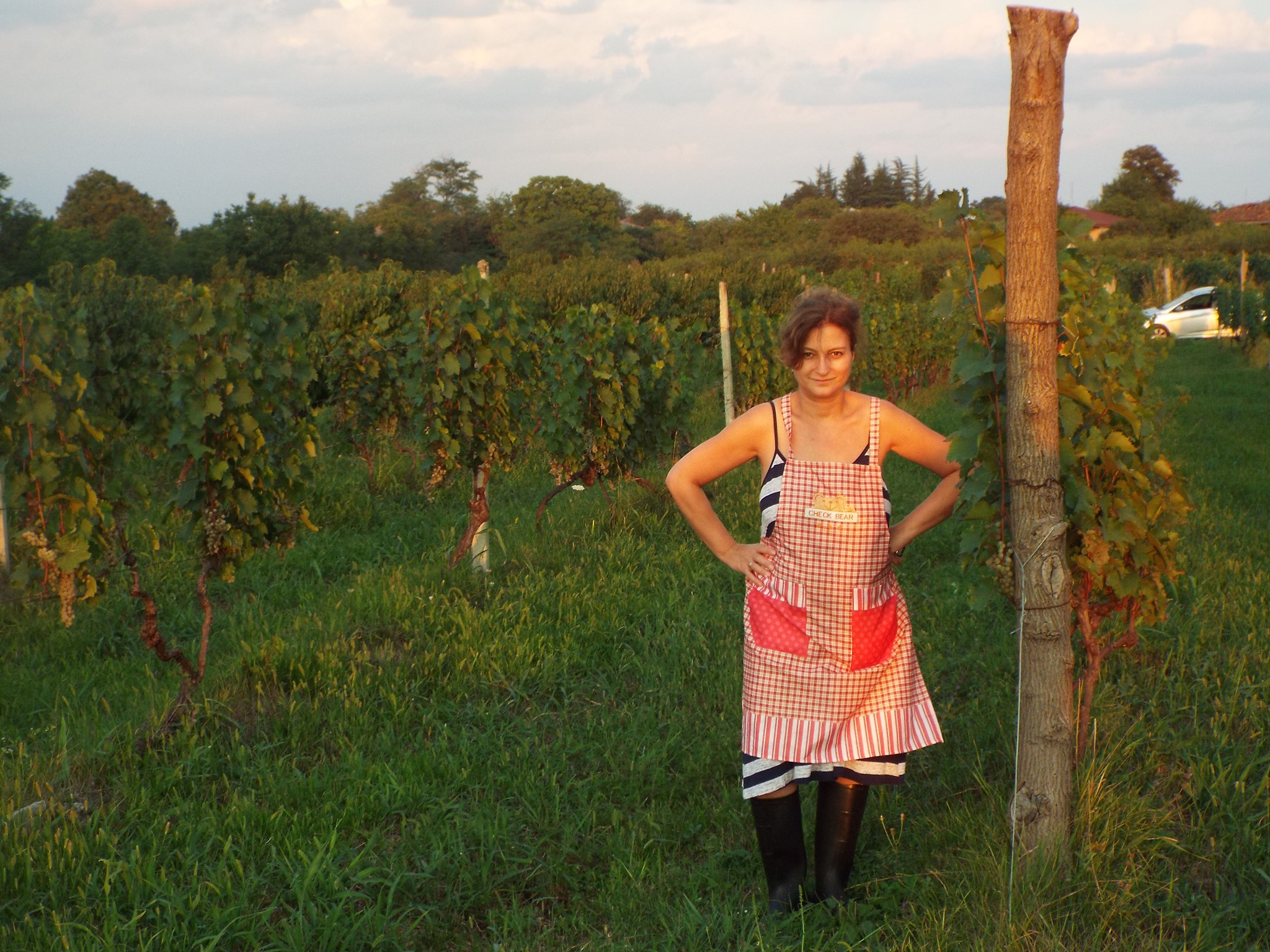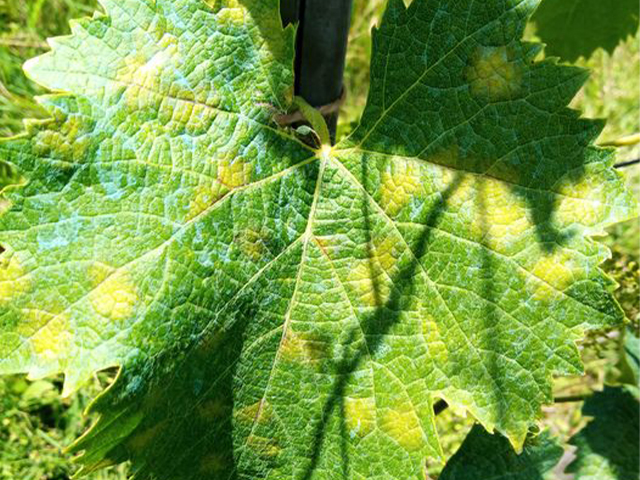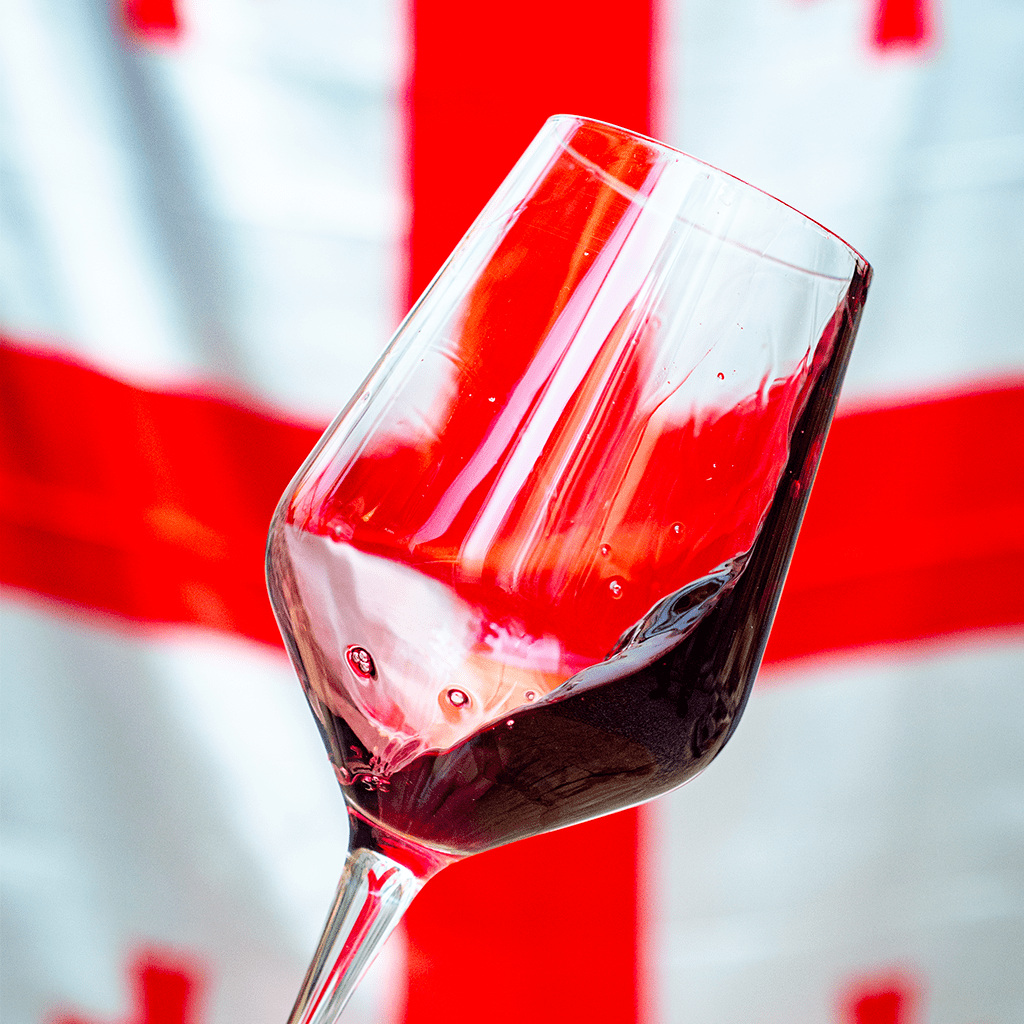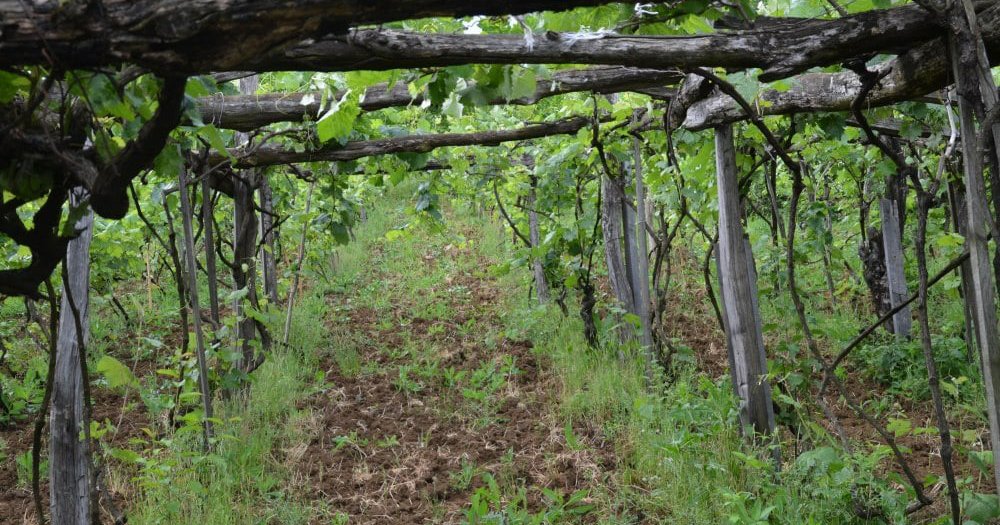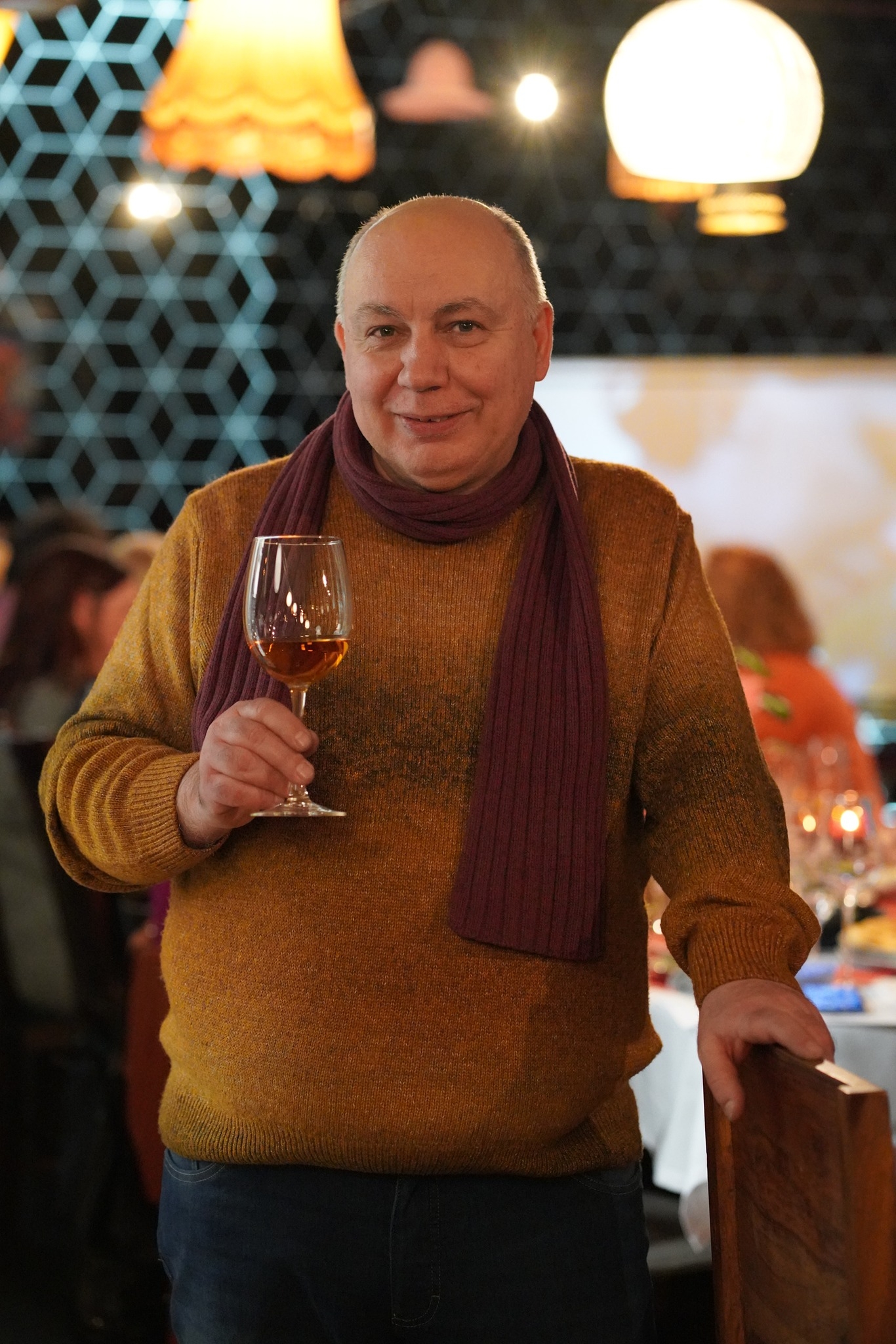Blog . 18-04-2023
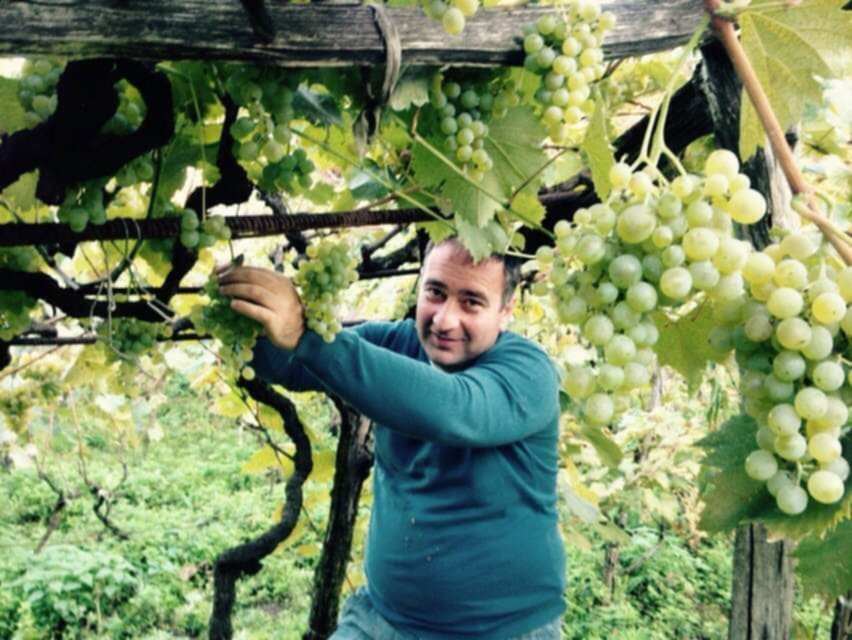
Murman Pansulaia: "Grape juice drawn from the ground should be returned to the ground temporarily"
Every winemaker who is a member of the Natural Wine Association has their own special story. These stories are often reflected in their wines, which is why natural wine lovers are also interested in the winemaker’s identity. Murman Pantsulaia, the winemaker of Pantsulaia’s Marani ‘Sargveshi,’ grew up in Tbilisi. He learned to make natural wine in Imereti style using Churi from his father in their native village of Sargveshi in Kharagauli and now continues this family tradition. Pansulaia has already bottled wine made from Tsitska and Tsolikouri grapes, naming it after their village: ‘Sargveshi.’
“When my father passed away, I made a decision: I would preserve his last bottles of wine as a cherished memento. I turned to my friend Zura Mgvdliashvili to help me bottle it. Carrying 20 liters in Kardanakhi, we carefully sealed the wine in his cellar,” recalls his first steps in winemaking Murman Pansulaia. “From that moment, I can say that I continue our family’s legacy. The vineyard, originally planted by my great-grandfather, holds nearly a century of tradition. I honor my ancestors and, above all, my father’s memory. During the challenging 1990s, when even bread was scarce, my father saved every penny to buy essential supplies like Shabiamani and lime. He’d travel overnight by train from Tbilisi to Kharagauli, then walk 12 kilometers to our village, carrying vineyard care products on his back. My grandfather’s wisdom echoed: ‘Tradition must endure, and the vineyard must thrive.’ With this mindset, I fell in love with winemaking. But I realized all this a little later. Throughout my childhood, I felt that my father had one more child besides me and my brother, and this child was called Tsitska and Tsolikauri, the vineyard left by my father. I’m not a businessperson; I’m a steward of tradition, guided by love, respect, and the memory of those who came before me.”
- How do you currently care for the vineyard, and what are your future plans?
- Before my father passed away, he planted a new vineyard a year earlier. Now, I’m tending to this vineyard alongside my brother and cousin, using organic viticulture methods and treatments. Initially, I had no knowledge, but with the assistance of friends and the Internet, I learned to navigate the vineyard. Even today, I frequently call winemaking friends, seeking advice on which tasks to perform and when.
- What can you tell us about Sargveshi village in Kharagauli, where your vineyard and Marani are located?
- Sargveshi is a beautiful, typical Upper-Imeretian village with rich viticulture traditions. According to tradition, Tsitska-Tsolikauri grapes were also cultivated here, and champagne-style wine was produced from Tsitska grapes. During the communist era, a small winery operated in the village. Each peasant family maintained its own vineyard and contributed a significant portion of the harvest to the collective farm for the village winery. This wine was stored in cisterns and then sent to the winery in the Kharagauli district. Simultaneously, nearly every working family had its own vineyard wine.
- Are you making wine in Qvevri?
- So much has been said about Qvevri and Qvevri wine that I’m not sure what else to add. I can’t even imagine making wine in a different way—without a Qvevri. It’s quintessentially Georgian, organic, and deeply traditional. In my view, we should embrace innovation and progress in all aspects, but when it comes to making wine in Qvevri, this 8000-year-old tradition remains unique and irreplaceable. I firmly believe that Georgians should continue makiung their wine in Qvevris. As my father used to say, the grape juice extracted from our ancestral land should be temporarily returned to that same land, which bears the history, labor, and essence of our forebears, allowing us to care for it, strengthen it, and transform it into a divine elixir.
- Do the family members take care of the vineyard?
- My brother, my cousin, and I are actively involved in maintaining the vineyard. Currently, we believe that this tradition should not end with us; instead, we plan to pass the baton to our children. Ultimately, it will be their choice whether to continue it or not.
- In your opinion, what distinguishes natural wine?
- In natural wine, one can sense the attitude—first and foremost—toward the vineyard, traditions, and the memory of ancestors. It also reveals the labor invested, the passion poured in, and the self-care practiced. In essence, it reflects the character of both the wine and the entire historical journey—from grape cultivation to wine fermentation. All these processes are like reflections in a mirror, and while savoring natural wine, one can feel their interconnectedness. Of course, this perspective is subjective.
Overall, the quality of Georgian wine has undeniably improved in recent years. Small wineries producing natural wine deserve credit for this progress. Harmful practices, such as diluting wine with water and sugar, burden our history. However, there’s a positive shift. Some individuals view winemaking not merely as a business but as a heartfelt endeavor—one that revives old traditions and restores the Georgian essence to our wines.
Additionally, there are those who have taken Georgian wine’s name abroad, introducing foreigners to the unique wine produced in Qvevris using the traditional Georgian method. Interestingly, the Russian embargo of 2006 played a role in this transformation. It prompted Georgian winemakers to rediscover their roots and embrace alternative markets, revitalizing our time-honored traditions.
Levan Sebiskveradze
